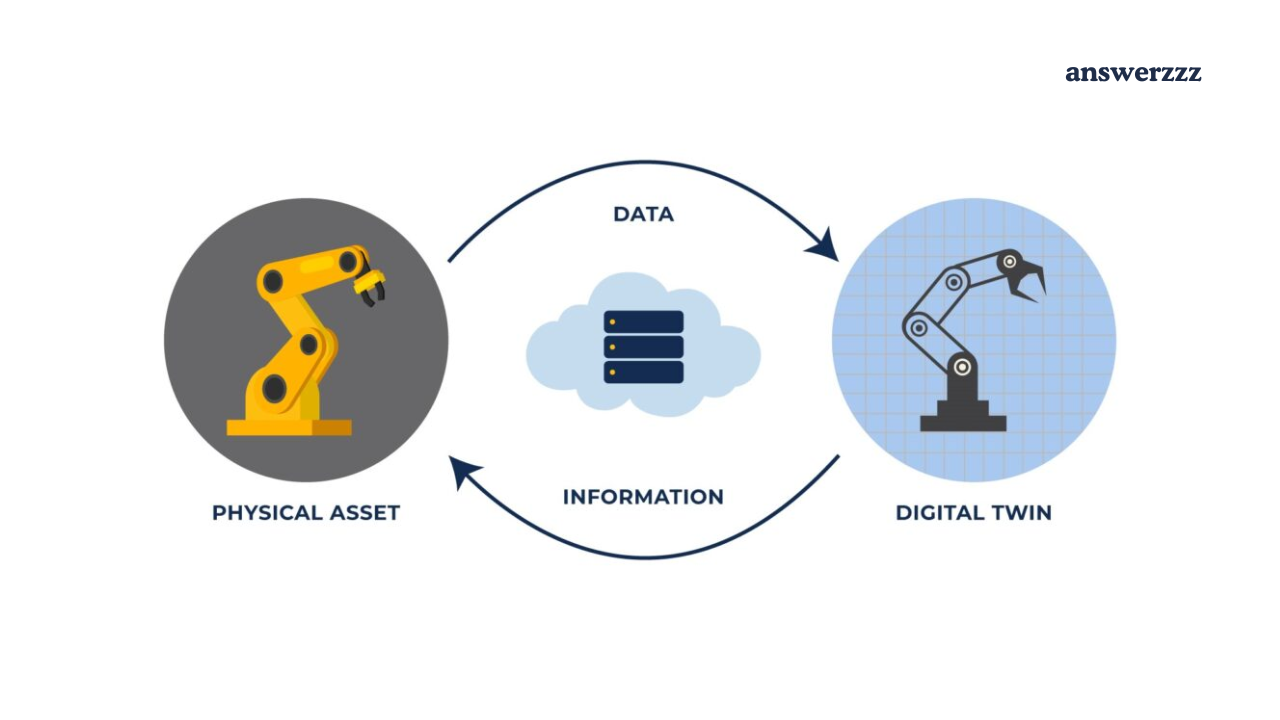In recent years, quantum computing has emerged as a transformative technology poised to reshape industries, redefine how we process information and unlock possibilities that were previously considered unattainable. Unlike classical computers, which use bits as the smallest units of data represented by binary states (0 or 1), quantum computers operate on quantum bits or qubits. Qubits harness the unique properties of quantum mechanics, such as superposition and entanglement, to process vast amounts of information simultaneously. This groundbreaking approach allows quantum computers to solve complex problems that would be nearly impossible for traditional computers to handle.
Quantum computing’s most notable distinction lies in its use of superposition, a property that enables qubits to exist in multiple states at once. Whereas classical bits are constrained to a binary state, qubits can represent both 0 and 1 simultaneously, exponentially increasing the potential for computational power. In addition, quantum entanglement enables qubits to be interconnected in ways that amplify their collective processing ability. When qubits are entangled, the state of one qubit instantaneously affects the state of another, regardless of distance, a phenomenon that could allow for rapid problem-solving across interconnected qubits. Together, superposition and entanglement have the potential to deliver unprecedented processing speeds, far surpassing those of even the most advanced classical supercomputers.

The Importance of Quantum Computing in Today’s World
The world faces several pressing challenges that demand innovative solutions, and quantum computing is expected to play a pivotal role in tackling these issues. Fields such as cryptography, materials science, drug discovery, logistics, and artificial intelligence are on the cusp of transformation through quantum computing. As a powerful tool for addressing complex calculations and data-heavy problems, quantum computing is not simply an improvement over existing computing methods; it represents a fundamental shift in how we approach problem-solving at the highest levels of complexity.
In cryptography, for instance, quantum computing holds the potential to break encryption protocols that currently secure global financial systems, data networks, and national security infrastructures. Traditional encryption methods are founded on the difficulty of solving complex mathematical problems, but quantum computers can process these problems exponentially faster, posing both a risk and an opportunity for data security. At the same time, quantum computing could enable the development of new encryption algorithms that are virtually unbreakable by classical means, fortifying data privacy and security in an increasingly digital world.
Key Concepts of Quantum Mechanics Underlying Quantum Computing
5G vs. 6G: What’s the Difference, and How Will It Impact Us?
The foundation of quantum computing rests on quantum mechanics, a branch of physics that describes the behaviour of particles at the smallest scales. Two principles, superposition and entanglement, enable quantum computers to operate beyond the capabilities of classical machines. Superposition refers to the ability of quantum particles to exist in multiple states at once. When applied to computing, superposition allows qubits to simultaneously process various possibilities, accelerating computation by orders of magnitude. Entanglement, on the other hand, connects qubits such that the state of one directly influences another, regardless of their physical distance. This property is essential to the efficiency and speed of quantum computations.
Quantum computers leverage these principles through specially designed hardware that keeps qubits in a stable state for processing. However, this is an enormous technical challenge. Qubits are highly sensitive to environmental disturbances, a phenomenon known as quantum decoherence, which can disrupt their state and compromise calculations. To counteract this, researchers use various techniques, such as error-correcting codes and ultra-cold environments, to maintain quantum stability during computation. Despite these challenges, recent advances have brought quantum computing closer to widespread, practical application, offering tantalizing glimpses into a future where quantum computers can be reliably used for industry-specific applications.
Revolutionizing Industries Through Quantum Computing
Quantum computing’s ability to perform calculations at unprecedented speeds and accuracy opens up transformative possibilities across multiple industries. One of the most promising applications is in pharmaceuticals, where drug discovery and development often require years of rigorous testing and extensive data processing. Quantum computers can simulate molecular structures and interactions more accurately than classical computers, dramatically reducing the time needed to develop new drugs. This technology could accelerate the discovery of treatments for complex diseases like cancer, Alzheimer’s, and many others, potentially saving millions of lives.
In the field of materials science, quantum computing enables the precise modelling of atomic structures, allowing scientists to design new materials with specific properties tailored for applications in energy storage, electronics, and even quantum computing itself. Quantum computers can simulate materials at the atomic level, providing insights into how materials can be engineered for strength, flexibility, or energy efficiency. This capability is likely to be transformative in industries ranging from construction to consumer electronics, offering sustainable solutions to resource consumption and waste management.
Quantum computing’s impact on logistics and supply chain management could also be transformative. By solving optimization problems faster and with greater precision, quantum computers can streamline processes such as route planning, inventory management, and demand forecasting. Companies like Volkswagen and DHL are already exploring how quantum algorithms can optimize logistics and reduce fuel consumption, costs, and environmental impact. As logistics efficiency improves, businesses will be able to respond to demand fluctuations more effectively, reduce waste, and enhance overall sustainability.

Quantum Computing and Artificial Intelligence
The integration of quantum computing with artificial intelligence (AI) is expected to usher in a new era of machine learning and data analysis. Quantum computers’ ability to process massive datasets and solve complex problems faster than classical computers will enable more advanced AI applications, from natural language processing to pattern recognition. Quantum-enhanced machine learning can accelerate data analysis, allowing AI systems to learn and adapt more quickly than ever before. This capability is particularly valuable in fields such as healthcare, finance, and cybersecurity, where AI can be applied to analyze patient data, detect fraud, or identify potential security breaches in real-time.
Furthermore, quantum algorithms can potentially solve problems in AI that are currently limited by computational constraints. For example, training deep neural networks is computationally intensive, but quantum computing could make it feasible to train larger and more complex models. This advancement would not only enhance the sophistication of AI systems but also make AI more accessible across industries, empowering businesses to leverage AI in innovative ways. The combination of quantum computing and AI is expected to drive significant advancements in autonomous systems, personalized medicine, predictive analytics, and other data-driven applications.
Blockchain Beyond Cryptocurrency: Surprising Uses of Blockchain in Various Industries
Challenges and Ethical Considerations in Quantum Computing
While the potential of quantum computing is vast, several challenges and ethical considerations need to be addressed as this technology continues to develop. One of the primary challenges is quantum decoherence, where the delicate state of qubits is disrupted by external factors, leading to errors in computation. Maintaining stable qubits requires highly controlled environments, often involving temperatures close to absolute zero, which is not only technically demanding but also expensive. Addressing these technical challenges will be crucial for making quantum computing more practical and accessible.
Ethical considerations also arise as quantum computing reaches new levels of processing power. In particular, the ability to break current encryption protocols raises concerns about data privacy and cybersecurity. If quantum computers are used to decrypt sensitive information, they could potentially compromise personal privacy, government secrets, and financial systems. To counteract this, researchers and organizations are working on quantum-safe cryptography, designing encryption methods that can withstand the processing power of quantum computers. However, the race between quantum technology and quantum-safe solutions highlights the need for responsible development and regulation.
The Future of Quantum Computing: What Lies Ahead
The trajectory of quantum computing suggests that it is not merely a futuristic vision but a rapidly approaching reality. Technology giants such as IBM, Google, and Microsoft are investing heavily in quantum research and development, each working on achieving quantum supremacy—the point at which a quantum computer can perform calculations beyond the reach of any classical supercomputer. While achieving practical, scalable quantum computing remains a significant challenge, progress in recent years has been remarkable, with advancements in qubit stability, error correction, and quantum algorithms.
In the coming decade, quantum computing is expected to shift from experimental laboratories to practical applications, transforming industries and reshaping economies. Governments and private institutions worldwide are establishing quantum initiatives and research centres, reflecting a growing recognition of the technology’s potential impact. As these efforts progress, industries across the board—ranging from finance and healthcare to environmental science and artificial intelligence—will benefit from quantum computing’s ability to solve complex problems and optimize processes on an unprecedented scale.

Quantum Computing’s Transformative Potential
Quantum computing represents a major leap forward in technology, one that promises to revolutionize industries and change the way we approach problem-solving. From enhancing drug discovery and materials science to improving logistics and artificial intelligence, the potential applications of quantum computing are vast and varied. As the technology continues to mature, it will unlock new possibilities, creating solutions to problems that once seemed insurmountable. At the same time, the challenges associated with quantum computing, including technical hurdles and ethical concerns, highlight the need for careful consideration as this powerful technology advances.
In the years to come, quantum computing is poised to become an indispensable tool in our technological arsenal, enabling breakthroughs that will improve our lives and reshape the global economy. This technology holds the potential to be as transformative as the development of the internet, and perhaps even more so. As industries across the world begin to harness the power of quantum computing, we stand on the brink of a new era in innovation, where the impossible becomes possible and the future becomes brighter with each quantum leap.
How Artificial Intelligence is Changing Everyday Life: What to Expect in the Next Decade



